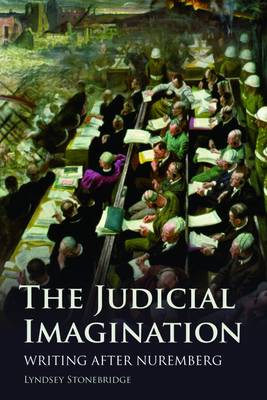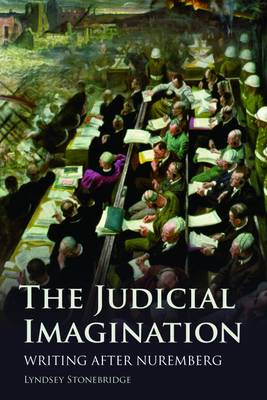
- Retrait gratuit dans votre magasin Club
- 7.000.000 titres dans notre catalogue
- Payer en toute sécurité
- Toujours un magasin près de chez vous
- Retrait gratuit dans votre magasin Club
- 7.000.000 titres dans notre catalogue
- Payer en toute sécurité
- Toujours un magasin près de chez vous
Description
Tells the story of the struggle to imagine new forms of justice after NurembergReturning to the work of Hannah Arendt as a theoretical starting point, Lyndsey Stonebridge traces a critical aesthetics of judgement in postwar writers and intellectuals, including Rebecca West, Elizabeth Bowen, Muriel Spark and Iris Murdoch. Writing in the false dawn of a new era of international justice and human rights, these complicated women intellectuals were drawn to the law because of its promise of justice, yet critical of its political blindness and suspicious of its moral claims. Bringing together literary-legal theory with trauma studies, The Judicial Imagination, argues that today we have much to learn from these writers' impassioned scepticism about the law's ability to legislate for the territorial violence of our times.
Key Features
* Returns to the work of Hannah Arendt as the starting point for a new theorisation of the relation between law and trauma
* Provides a new context for understanding the continuities between late modernism and postwar writing through a focus on justice and human rights
* Offers a model of reading between history, law and literature which focuses on how matters of style and genre articulate moral, philosophical and political ambiguities and perplexities
* Makes a significant contribution to the rapidly developing fields of literary-legal and human rights studies
Spécifications
Parties prenantes
- Auteur(s) :
- Editeur:
Contenu
- Nombre de pages :
- 178
- Langue:
- Anglais
Caractéristiques
- EAN:
- 9780748691258
- Date de parution :
- 21-05-14
- Format:
- Livre broché
- Format numérique:
- Trade paperback (VS)
- Dimensions :
- 155 mm x 231 mm
- Poids :
- 340 g







